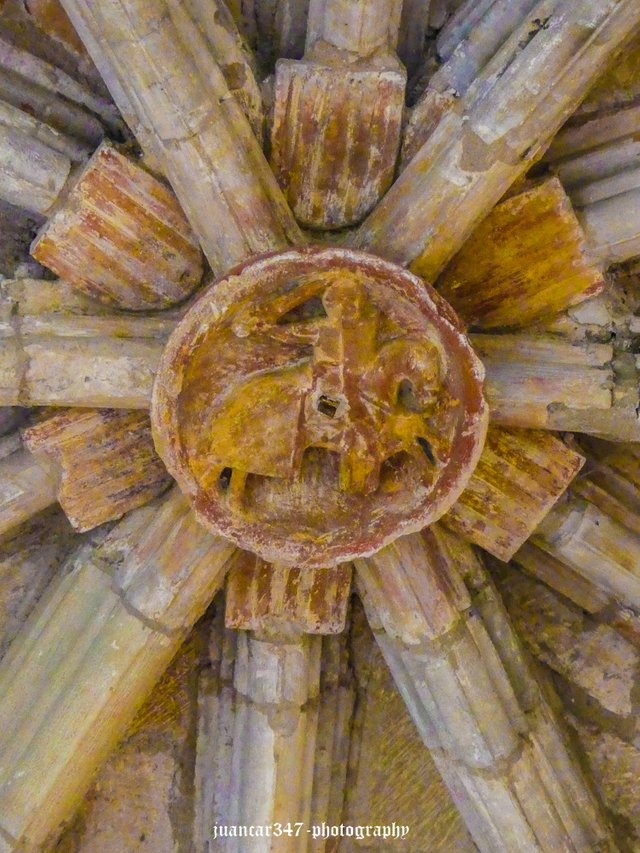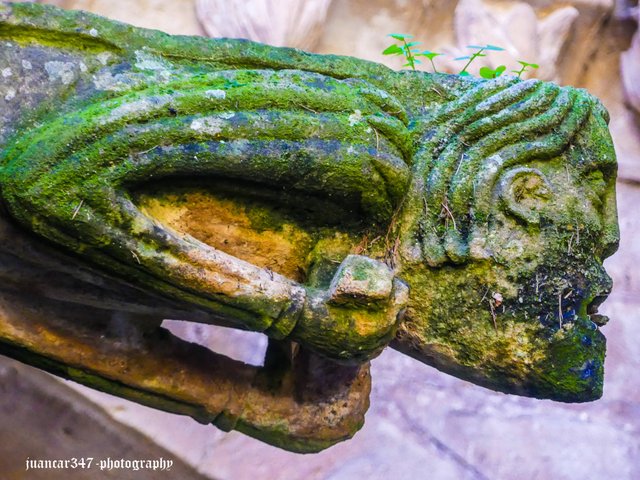
There is no certainty about it, but it is quite probable that the author of some poems, which, in the opinion of eminent literary critics, such as Eugenio D’Ors, resembled ‘an accordion played by an angel’, that is, the Sevillian poet Gustavo Adolfo Bécquer, made the same gesture as the medieval monks at matins and washed himself in this same washhouse, watching the hours pass with the languid slowness as we are supposed to think time passed behind the walls of a monastery.
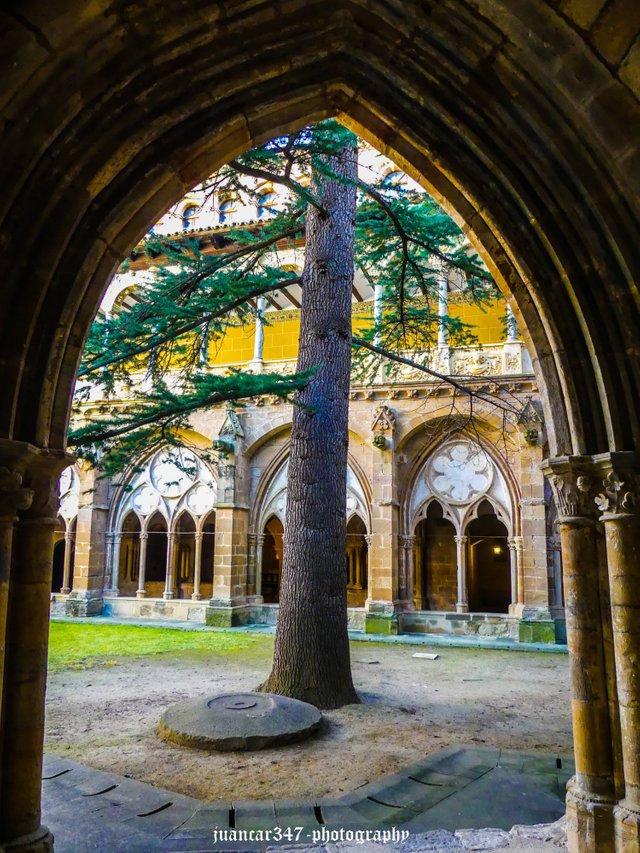
Even though it occupies the centre of a cubicle, which, in some way, somewhat alters the gridded segmentation of a cloister that was already beginning to yield to the influence of a style as disconcerting as the Gothic, it is possible to speculate about cold dawns and water, almost frosty, whose icy texture, to the touch, would be an infallible remedy to free the poet's thoughts from their volatile and voluntary exile in the dungeons of the supernatural.
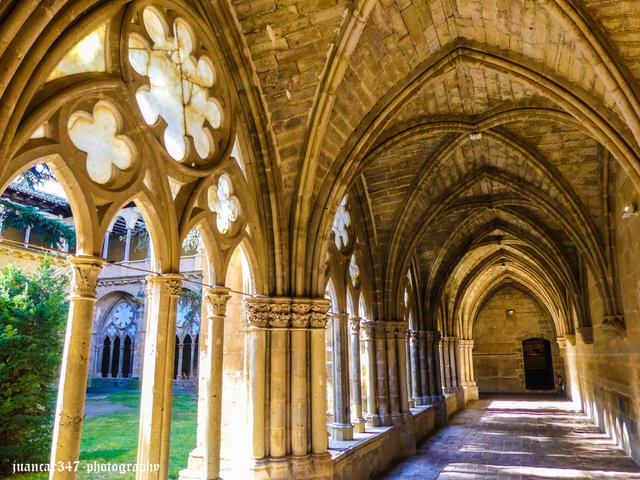
Although the supernatural, after all, could be said to be a constant in this place, where the brilliance of an architecture based on the language of the Universe, Geometry, is opposed to the dark ugliness of demons, the gargoyles, who, seen in those moments when the dawn can barely release the influence of sleep in the pupils, could be the best prelude to a frightening hallucination.
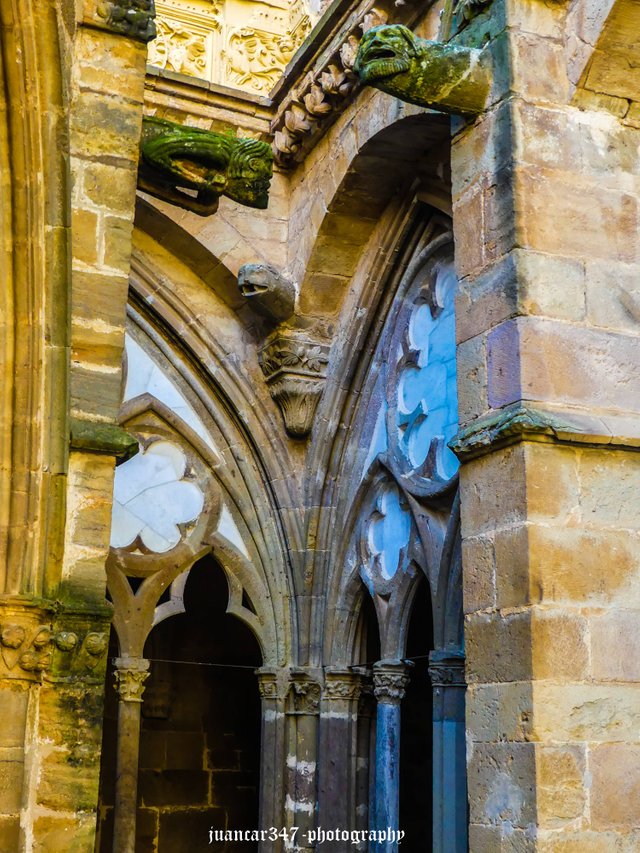
No hay certeza de ello, pero es bastante probable que el autor de unos poemas, que, a juicio de eminentes críticos literarios, como Eugenio D’Ors, semejaban ‘un acordeón tocado por un ángel’, es decir, el poeta sevillano Gustavo Adolfo Bécquer, hiciera el mismo gesto que los monjes medievales en maitines y se aseara en este mismo lavadero, viendo las horas pasar con la lánguida lentitud a como supuestamente hemos de pensar que transcurría el tiempo tras los muros de un monasterio.
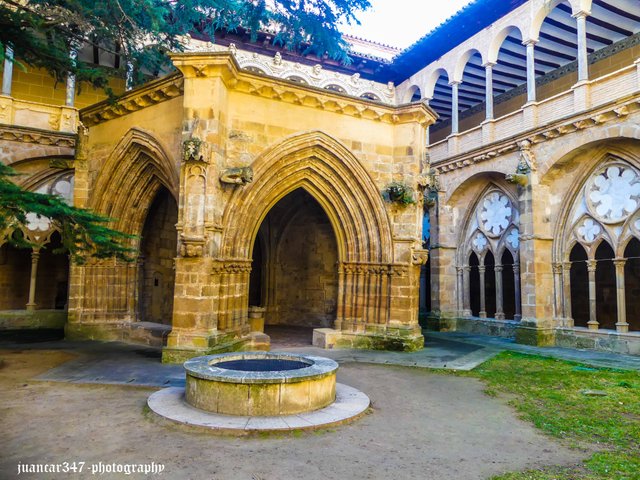
Aun ocupando el centro de un cubículo, que, de alguna manera, altera un tanto la cuadriculada segmentación de un claustro que ya comenzaba a rendirse al influjo de un estilo tan desconcertante como el Gótico, cabe especular con unos fríos amaneceres y agua, poco menos que escarchada, cuya gélida tesitura, al tacto, sería un remedio infalible para liberar los pensamientos del poeta de su volátil y voluntario exilio en las mazmorras de lo sobrenatural.
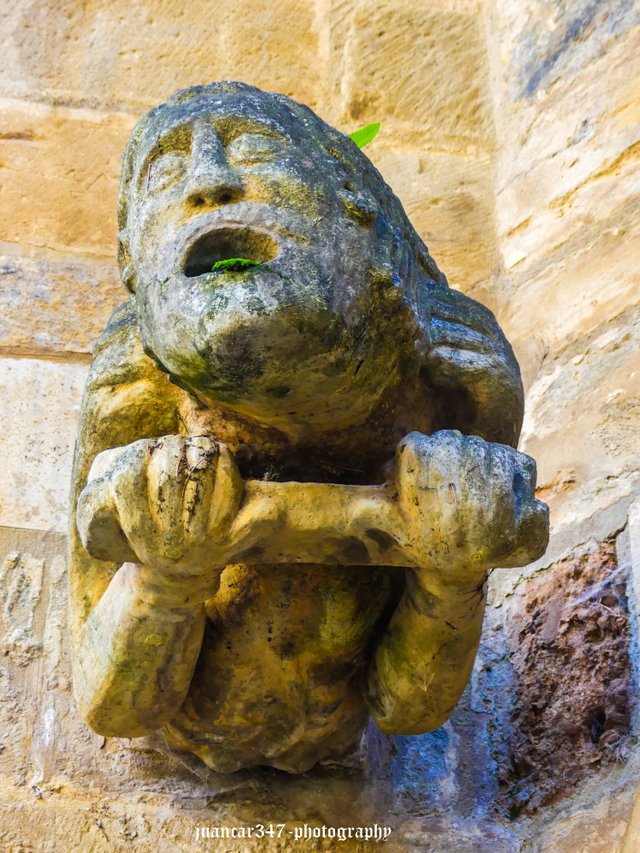
Aunque lo sobrenatural, después de todo, podría decirse que es una constante en este lugar, donde la brillantez de una arquitectura basada en el lenguaje del Universo, la Geometría, se opone a la oscura fealdad de unos demonios, las gárgolas, que, vistos en esos momentos en los que la aurora apenas puede liberar el influjo del sueño en las pupilas, podrían ser el mejor preludio a una espantosa alucinación.
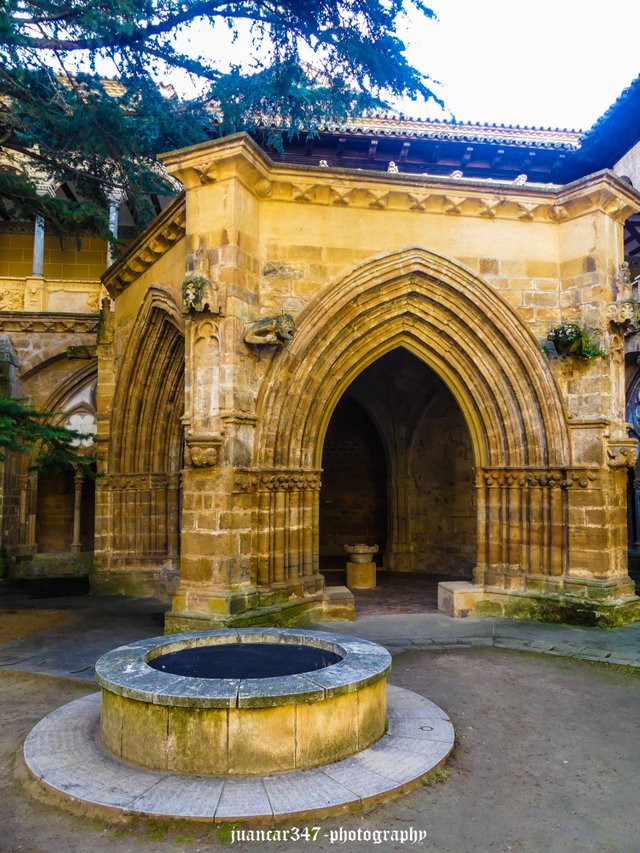
NOTICE: Both the text and the accompanying photographs are my exclusive intellectual property and are therefore subject to my Copyright.
AVISO: Tanto el texto, como las fotografías que lo acompañan, son de mi exclusiva propiedad intelectual y por lo tanto, están sujetos a mis Derechos de Autor.
